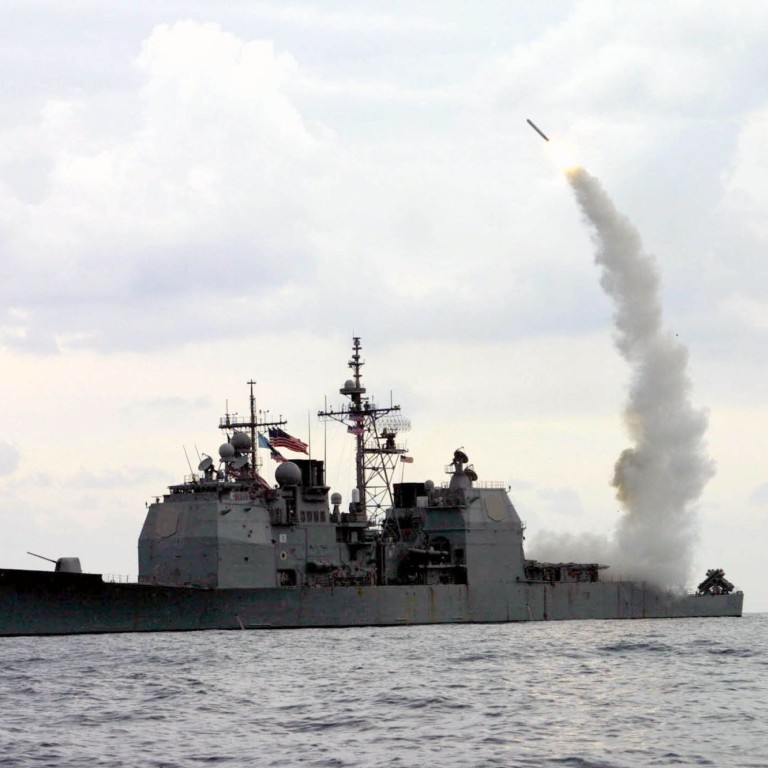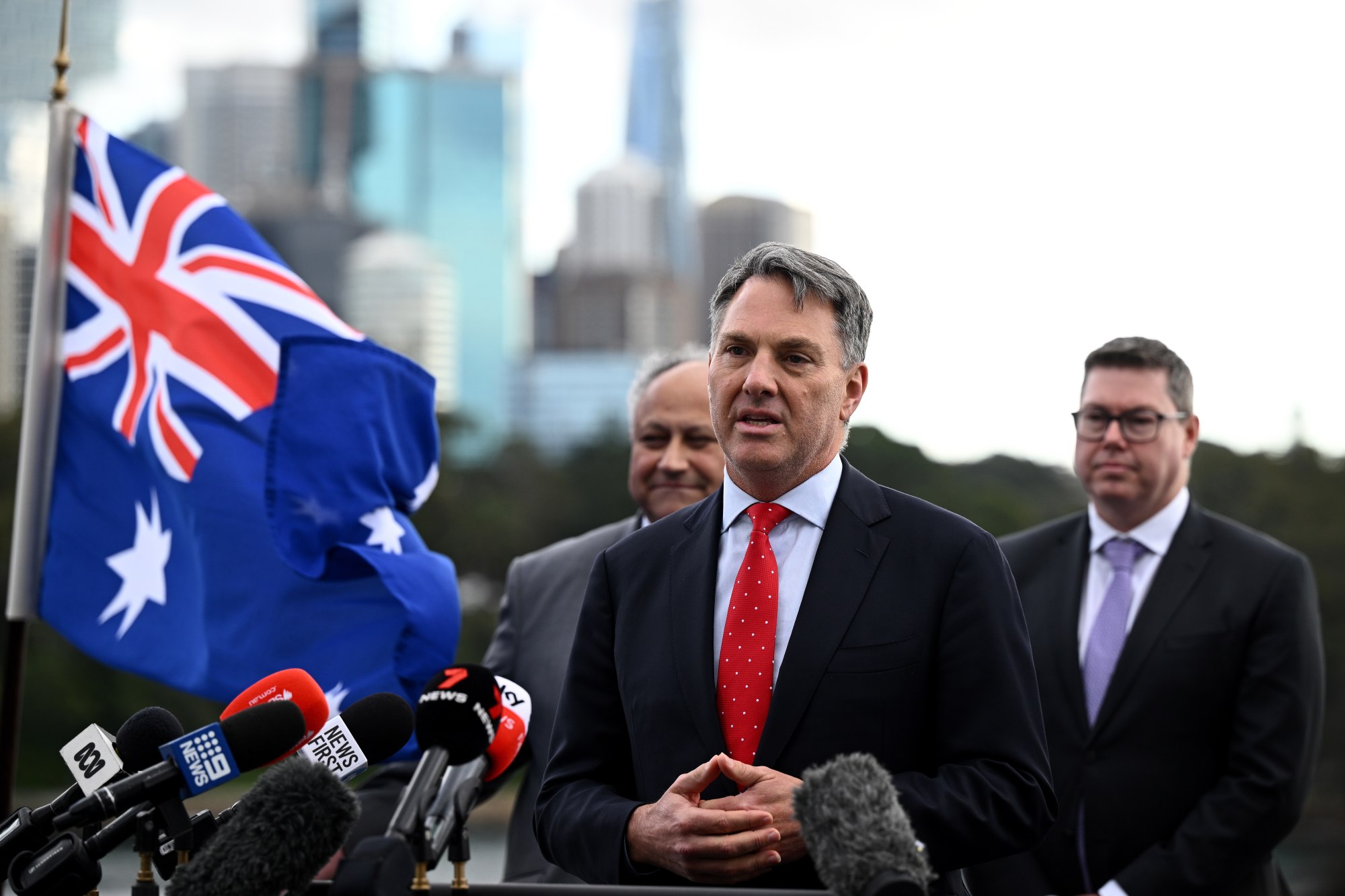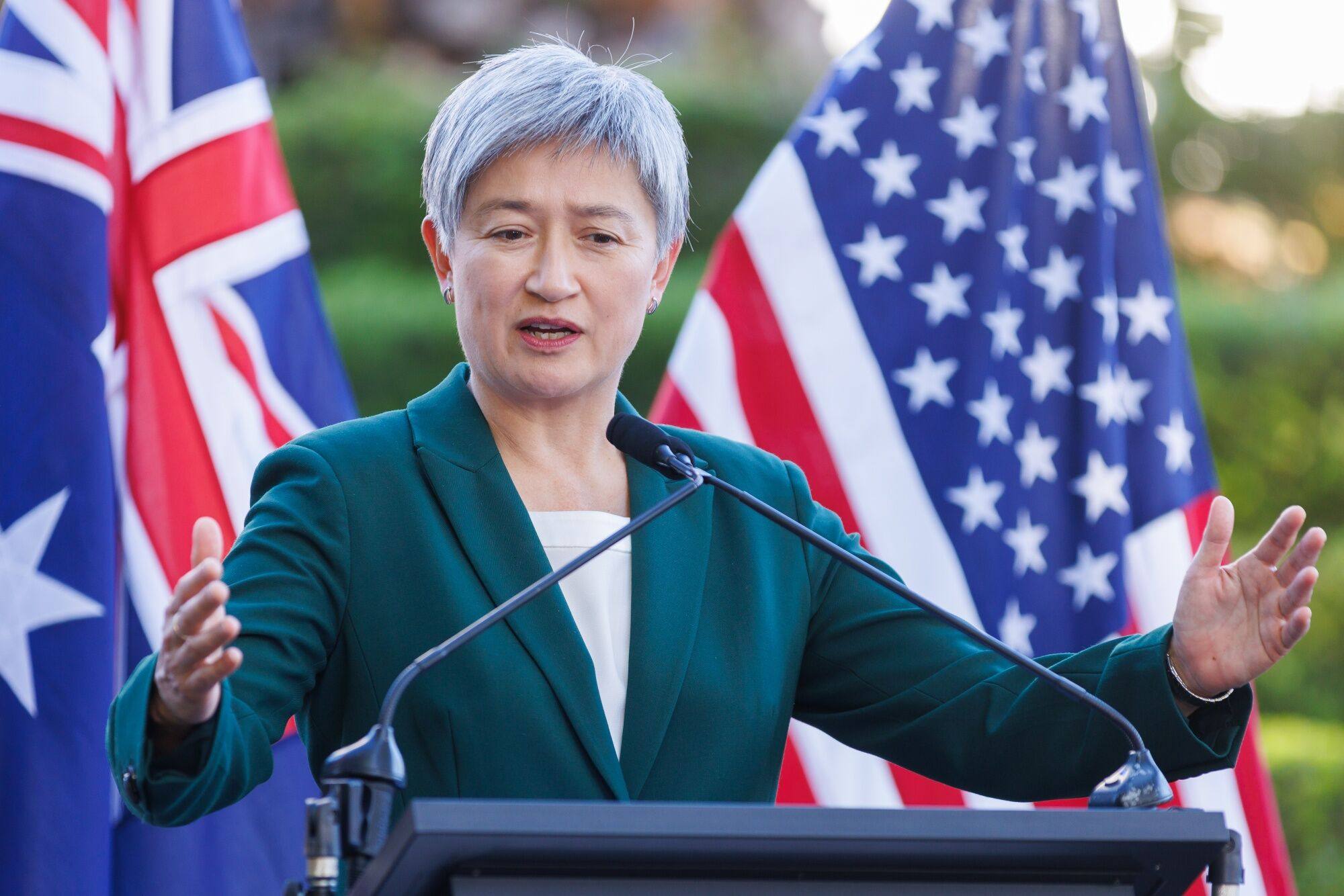
Australia buys US$1.1 billion of US missiles amid Aukus and ‘arms race’ concerns
- Australia’s purchase of 200 Tomahawks means it will be one of only three nations to own the missiles, which have a range of 1,500km
- The acquisition is backed by a defence review which recommended Australia adopt a strategy that would prevent adversaries from reaching its shores
Australia has acquired A$1.7 billion (US$1.1 billion) of missiles from the United States, as domestic concerns about its purchase of nuclear-powered submarines under the Aukus alliance with the US and Britain continue to simmer.
Defence minister Richard Marles and defence industry minister Pat Conroy said the acquisition was backed by the nation’s latest defence review in April, which recommended Canberra adopt a strategy that would prevent an adversary from reaching Australian shores, such as building long-range missile capabilities.
It also comes after Foreign Minister Penny Wong was quizzed during a local interview on Sunday on whether Australia was in an arms race with China and viewed Beijing as a threat, although Wong did not want to be drawn into the discussion.

On Monday, Canberra announced it was buying from the US about 200 Tomahawk cruise missiles for A$1.3 billion and 60 Advanced Anti-Radiation Guided Missiles for A$431 million.
Australia will be one of three nations to own Tomahawks along with the US and Britain. The missiles have a range of 1,500km.
These purchases are on top of the A$368 billion earmarked for the Aukus nuclear-powered submarines over 30 years.
“With the acquisition of these formidable long-range strike missiles, the Albanese government is acting with pace to deliver on the recommendations of the Defence Strategic Review,” Marles said. “We are investing in the capabilities our Defence Force needs to hold our adversaries at risk further from our shores and keep Australians safe in the complex and uncertain world in which we live today.”
“The war in Ukraine has demonstrated the importance of having not just war stocks, but [also] a domestic missile manufacturing industry, and this announcement will help deliver that.”
Australia’s Aukus deal safe for now, but split in Labor reveals ‘problems ahead’
Marles’ comments about the missiles reflected Canberra’s rationale for Aukus, which had been repeated in the past week to members of his party who had become increasingly concerned about the dangers of ceding Australia’s sovereignty to the US while fuelling an arms race.
Party members had heckled Conroy when he said during the conference that “the arms race has already started”, telling the party caucus not to join it.

Following the conference, foreign minister Wong on Sunday was questioned by the national broadcaster on whether Canberra had mounted an arms race with China and saw China as “making the world more dangerous”.
Repeating a commonly used rhetoric that the world was facing “most challenging strategic circumstances since the end of World War II”, Wong said Canberra’s actions were about ensuring “a peaceful, stable and prosperous region in which sovereignty is respected”.
“A key part of that is strategic balance. That includes military deterrence, but it also includes reassurance through diplomacy and engagement,” she told the Australian Broadcasting Corporation.
Australia can be a ‘reasonable’ moderator to ease US-China tensions: ex-minister
When asked if China was making the world more dangerous, Wong said Canberra had been upfront about the military build-up in the region.
“We know that there is greater strategic competition between the great powers. We know what is happening in our region. We’ve seen recently, exercises in the Taiwan Strait, we’ve seen events in the Philippines,” she said.
Wong also said Canberra was “closely” considering the United Nations’ Treaty on the Prohibition of Nuclear Weapons (TPNW) but said there were questions about its architecture, for example, its consistency with the Nuclear Non-Proliferation Treaty (NPT).
Australia joined the NPT in 1973 but has not signed or ratified the 2017 TPNW, although the Labor Party has committed previously and again over the conference last week to signing it.

